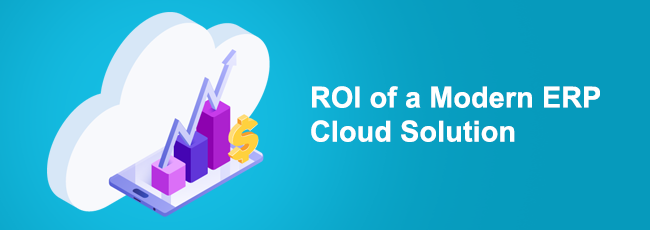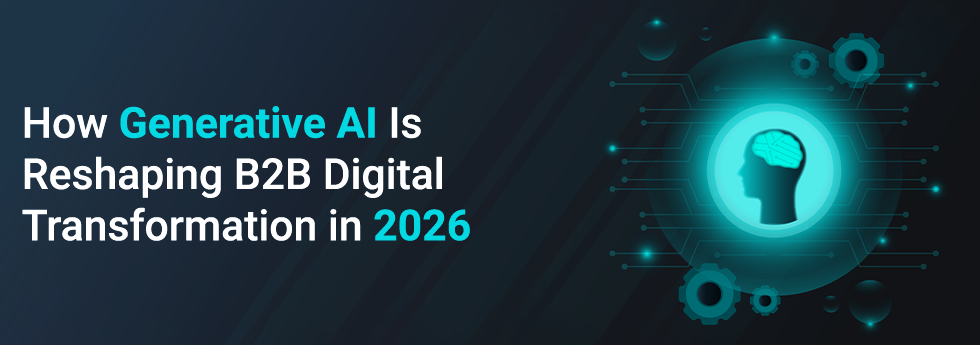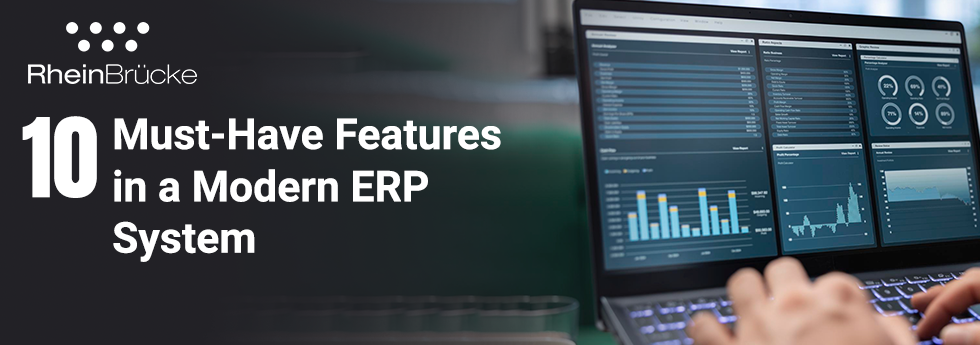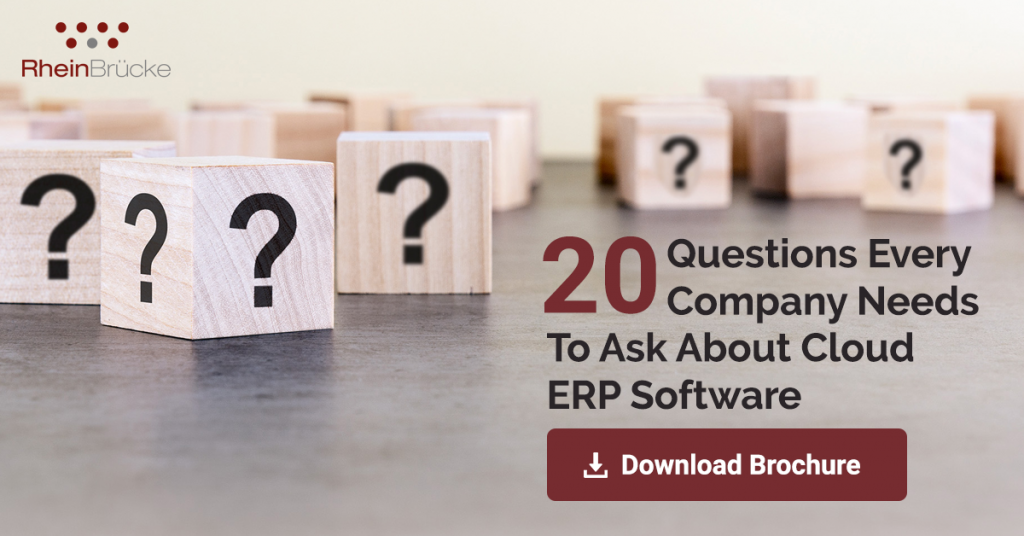
In a world that is hurtling towards an increasingly digitized environment, it has become necessary for businesses to constantly keep up with new technology. Legacy systems, especially in a world progressively dominated by the Cloud, are becoming a burden, you need to maintain old hardware, buy licenses every time you need to add a new user and there is an enormous amount of difficulty when you want to integrate other business systems. According to Gartner, by 2025, more than half of enterprise IT spending in important market segments will move to the cloud. . While modern technology like a top cloud ERP software may sound like a significant investment in terms of time and efforts, it is, in fact, proven to save on average, more than 20% in IT spending.
In a recent PwC survey, 78% of executives responded that their organisations have adopted cloud technology across most or all of their business operations. It has also been seen to deliver more than two times the relative return on investment (ROI) than a legacy or an on-premise ERP system. In this blog, let’s see how the ROI of a cloud ERP differs from the ROI of an on-premise ERP implementation and what are the factors affecting the ROI in ERP on the cloud.
Why is ROI Calculation Necessary in ERP System Implementation?
Most would wonder why it is necessary to calculate ROI for ERP implementation in the first place. Most businesses rely on a rudimentary features vs cost-benefit analysis before deciding on a major investment or implementing a significant change to gauge how the investment will “pay for itself”. Such an analysis is fairly simple, it means you delineate the costs on one side and the returns on the other. A couple of simple mathematical operations later and you have a rough, approximate idea on the payback period and an internal rate of return. While this kind of ROI analysis is helpful, it is far removed from the much more complicated reality: such an analysis only accounts for clear and apparent costs. There may be, however, hidden costs that are not listed in the vendor’s proposal or project budget. Further, benefits are more than just the monetary returns to the company. Benefits such as employee quality of life, the impact of employee absenteeism, improved productivity, direct savings, employee turnover, etc. are very difficult to predict. Similarly, measuring successes is also difficult as there are no baseline measurements available.
Thus, calculating ERP ROI methodically is a necessary requirement before investing in a project. A good ROI analysis of your ERP Implementation best practices would allow you to better understand the kind of project framework you need to implement. It would also allow you to monitor the progress of the project and fully see it into successful completion.
Is upgrading to a Cloud ERP really worth it?
The first thing to keep in mind when one is calculating ROI for an ERP system is that the nature of ongoing costs in on-premise and SaaS cloud systems are extremely different. This is because you are virtually outsourcing all of the hardware and software maintenance. But it is important to note that the capital expense of ERP Comparison for SME’s for a cloud-based ERP system is far lower than an on-premise system. According to Nucleus study, cloud delivers 4.01 times the ROI as on-premises. There is little to no investment necessary or infrastructure creation, licensing fees, IT staff acquisition and maintenance costs.
There are some other visible benefits to the best cloud ERP systems. ERP on the Cloud allows for one single data repository irrespective of the location so that relevant employees may access it at any point in time. This allows for significantly reduced IT costs.
Further, due to cloud ERP implementation, the quote to cash time is reduced as the accuracy of billing is increased. Financial closing formalities at the end of the month of the year are thus made more efficient and simpler. Along the same lines, employees do not have to manually enter data and consolidate information on spreadsheets, thus there is a significant increase in user productivity with cloud ERP systems than with on premise systems. Additionally, there is an increase in customer satisfaction, improved compliance, and a better system of accounting integration.
Factors affecting ROI in ERP on the Cloud
There are a couple of key factors that affect the way ROI in enhanced with a cloud ERP system. The most obvious is the improved profitability due to the lower upfront cost structures associated with the Cloud ERP. Further, ongoing costs associated with hardware maintenance and related IT staff are also nil. Security and availability of Cloud ERP is usually at an extremely high level, since these are usually hosted in robust fault-tolerant data centers with 24×7 monitoring.
From a business user perspective, with better inventory management, you may reduce inventory levels. Best cloud ERP software allows for improved invoice accuracy and thus, collection cycles can be decreased by not compromising on the cash flow. The functional architecture is such that it allows you to monitor financial performance through state-of-the-art analytics. These help you compare budget-versus-actual situations and allows you to create and implement necessary changes and actions.
One ERP system that has been proven to generate a high ROI is Epicor Cloud ERP solutions. According to Forrester’s Total Economic Impact Study (TEI), Epicor ERP system delivered 264% ROI over three years to the typical manufacturing customer. According to the study, Inventory management contributed to the biggest savings, with almost $4.4million in inventory benefits from the composite manufacturer. Inventory management powered by Epicor was seen to result in 10% improvement in accuracy and 67% reduction in inventory counting efforts. Another area where Epicor is proven to have generated revenue for the customer is in terms of planning and scheduling. According to the study, the customer earned $1 million in planning and scheduling benefits. This is because Epicor provides the customers with the flexibility and agility to successfully tackle new demands and monitor operations. In the Forrester study, most manufacturers depended on outdated legacy ERP systems before switching to Epicor manufacturing software. With Epicor ERP for manufacturing industry, they centralized operations that were otherwise carried out on silo applications or homegrown solutions. This helped the manufacturer gain almost $2.3 million in IT benefits. By replacing legacy systems with the best Cloud based ERP Solution for SMB’s- Epicor, the businesses saved almost $800,000 in annual maintenance and infrastructure costs.
Epicor ERP on RheinBrücke cloud provides top of the line technology with impressive ROIs to SMEs. We are the largest Epicor ERP Implementation Partner in EMEA region and are committed to providing only the best and this is it. Transform your business for the better today, get in touch with us.
Watch our webinar on how to calculate ROI for your ERP to save Money
Contact us to know more about Epicor on the Cloud.




